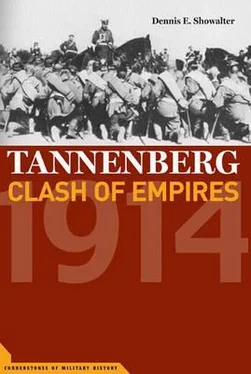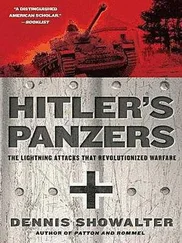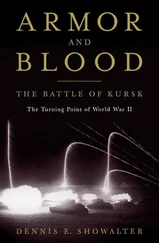The impact of such ideas was exacerbated by the ambiguous nature of nationalism in the new German Empire. Its roots at best were shallow, its symbols meager—a flag without a history, a monarchy without a heritage, an army without a common identity. The chauvinism that so offended Germany’s neighbors in good part reflected deliberate government efforts to legitimate itself by creating a national self-consciousness. 20At the same time, exponential improvements in transportation and communication were shrinking the map of Europe. Space and spatial relationships grew correspondingly important. Time itself seemed to grow more compact. In this context the new Reich seemed for all its surface strength to be “a mollusc without a shell,” vulnerable physically and psychically from all directions. 21
From this perspective it was a short step to visions of stabilization by expansion. Certain liberals, Friedrich Naumann, Lujo Brentano, and Gustav Schmoller, saw a partial solution to Germany’s social problems in terms of a Mitteleuropa. Dominated culturally, politically, and economically by Germans, this entity would also secure the traditional heartland of the West against the threat posed by the emerging world empires: America, Britain, and above all Russia. The concept was, in the minds of its creators, a defensive reaction. Its advocates staunchly denied any interest in an Ostimperium of Slavic helots under German rule. In this they stood in sharp contrast to those nationalists whose praise for the Germanizing of Slavic territory in the Middle Ages increasingly combined with fear of Panslavic expansionism to generate advocacy of a Drang nach Osten —the eastward expansion of German power.
Benign considerations of this process described Russia’s quick defeat and permanent withdrawal into the wastes of Asia, then hurried on to discuss how the Danube and Vistula basins would become Edens under German hands. Other writers dwelt more lovingly on the prospect of Russian troops fleeing before German bayonets, of villages razed and peasants deported to make room for the younger, fitter race. Yet it seems worth noting that even the most extreme ideologues of the Pan-German League focussed before 1914 on “internal colonization”—the resettlement of German peasants on German soil misused by Poles or Junkers. Their visions of conquest and resettlement were presented as reactions: consequences of Russia’s unfortunate policies of aggression. 22
Even a fire-eater like Heinrich Class denied as late as 1912 any real grounds for war between Russia and Germany. Should the tsar be foolish enough to start trouble, Germany would fight. But her war aims would involve no more than territorial adjustments to create a more defensible frontier and some room for colonization. Class conceded that the latter process would involve displacing the present inhabitants. But at least before 1914, he expressed himself in such a circumlocutory passive construction that the point is almost lost—“woher die Evakuierung sich nicht umgehen lassen wird.” 23
The increasing anxiety Germans of all ranks and classes felt toward Russia and her ultimate intentions was reinforced during the 1890s from a previously unlikely source. In 1879, Bismarck’s growing hostility to domestic supporters of free trade had resulted in a new and comprehensive structure of tariffs including a schedule of duties on imported Russian grain.
Retaliation was swift and enduring. In the eleven years after Bismarck’s initiative, Russia’s import duties on manufactured goods, already high, were increased four times. The direct economic impact of this escalation on German industry must not be exaggerated. As Walther Kirchner argues, we should expect to find industrialists complaining of high customs duties whenever they deal with their governments. Practical men proceeded to find ways around the barriers—improving production or marketing techniques, securing Russian patents, seeking purchase contracts from state agencies. These, however, were second-best solutions in a German business community regarding Russia as a virtually inexhaustible reservoir of potential customers, private and official, all the more attractive for being difficult of access. By the time Leo von Caprivi succeeded Bismarck as chancellor, the chorus of grievances encouraged the negotiation of a new set of commercial agreements with Russia—agreements the German chamber of commerce described as incorporating “unprecedented” reductions in tariffs on manufactured goods in return for significantly lower taxes on grain. A wave of protest from the agricultural East, including many letters from peasants and small farmers, was not enough to keep the Reichstag from approving the treaty on March 10, 1894. 24
This change in government policy contributed significantly to increase Russophobia on the agrarian right. Where businessmen saw markets, farmers saw competitors: a golden tide of cheap foodstuffs that would bankrupt estate owners and peasants alike. The anxieties generated by the Treaty of 1894 were further exacerbated as Russia embarked on a major program of railway construction. Its principal sponsor, Sergei Witte, made no secret of the fact that one of the main purposes of the improved transportation network was to enhance the marketability of Russian grain by reducing its delivery costs. The landowners of Germany’s eastern provinces historically tended to identify with Russia’s social and political order. But as more and more acres in previously isolated regions began contributing to the export pool, even the least imaginative of Junkers found no difficulty in seeing an economic threat from the East that could not be indefinitely conjured away by manipulating votes in the Reichstag. 25
The old order was changing. Nevertheless the impact of popular antagonisms must not be overstated. The proverbial lieutenant and ten men could not really have closed the Reichstag, but parliament’s role in German foreign policy involved far more pointing with pride and viewing with alarm than systematic participation in decision making. Russia’s foreign affairs were even more firmly in the hands of an elite—an elite not necessarily susceptible to journalistic attacks on German intentions and literary suspicions of German good will.
This was demonstrated in the aftermath of the Congress of Berlin. Tsar Alexander III, who succeeded his assassinated father in 1881, viscerally distrusted the bumptious industrial empire on his western border, a distrust in no way diminished by his love match with a Danish princess brought up on memories of 1864. But his choice as foreign minister was N. A. Giers, who argued that Russia had too many internal problems to sustain overt antagonism with any of her neighbors. Bismarck for his part wished as far as possible to reknit the Russian connection. His Dual Alliance of 1879 was intended more to strengthen Germany’s position vis-à-vis Russia than to underwrite either Austria’s place among the great powers or any ambitions she might entertain in the Balkans.
The Second Three Emperors’ League of 1881, renewed in 1884, marked on one level a triumph of common sense. The league linked the eastern powers in an agreement to remain “benevolently neutral” should any of them go to war with a fourth power. It secured Russia’s European flank. It precluded the possibility of a Franco-Russian alliance and of Russo-Austrian rapprochement at Germany’s expense. The league, however, also encouraged the bureaucratization of tension. Its very existence combined with Germany’s insistence on playing a mediator’s role to make Russia and Austria-Hungary aware on an ongoing basis of the problems in their relationship, and their fundamental insolubility within existing parameters.
For Bismarck this temporary stability was enough. He was confident of his ability to solve the tactical problems of diplomacy as they arose—a confidence exacerbated by his often-expressed contempt for the skills of his Russian and Austrian counterparts. But if Metternich had been the coachman of Europe, Bismarck was fast becoming its circus rider, standing with one foot on each of two galloping horses, hoping somehow to keep them moving in the same direction at the same pace. And the focus of tension between them, the Balkan Peninsula, was far too tempting a hunting ground for diplomats with delusions of genius, soldiers with illusions of glory, and businessmen with hopes of profit.
Читать дальше












